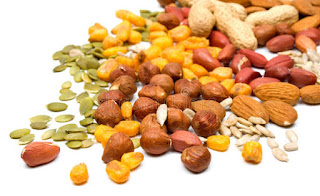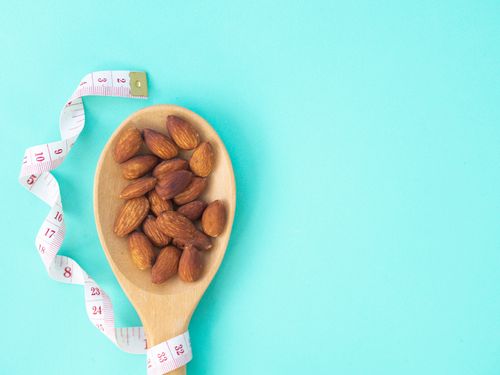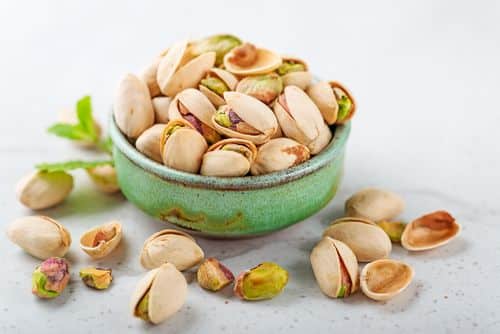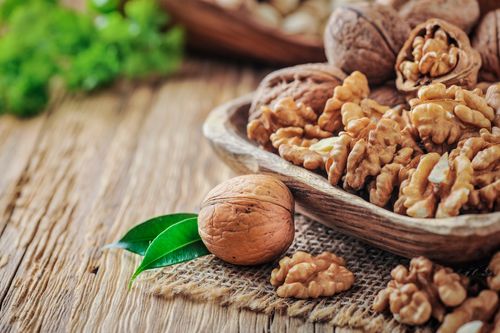Are Weight Fluctuations Normal ?
Sometimes weight fluctuations can seem unusual. If you experience fluctuating weight by 6 pounds in either direction over a period of 6 months, there may be a more serious cause that should be assessed.
However, in most cases, weight fluctuations are normal and also manageable. Weight fluctuations can happen throughout the week and can even vary month to month. There are many different factors and causes that can contribute to them. Let’s go through some of the most common causes of weight fluctuation:
Causes of Weight Fluctuation
Weight fluctuations are mostly caused by lifestyle choices and the body’s natural rhythms and cycles.
The good news is that many of these factors can be controlled by choosing the right foods, exercising regularly and drinking enough water. Let’s go through some of the main causes of weight fluctuations:
Eating A Balanced Diet

Weight gain can be caused by eating foods rich in salt, sugar and fat. Weight fluctuations can also be caused by a poor diet.
Your body has a required amount of calories that you must consume in order to maintain a healthy body weight.
Eating a balanced diet that fulfills your required calorie intake and that is rich in fibrous fruits and vegetables will help maintain a stable body weight and reduce fluctuations. If you are concerned about water retention caused by sodium, eating foods that are rich in potassium and magnesium, such as bananas, nuts, and leafy greens can balance your sodium levels. Reducing your salt intake from processed and packaged foods is important and can reduce bloating and excessive weight.
Drink Enough Water

Drinking enough water can also reduce fluctuations. A diet high in sodium can cause weight gain as sodium can retain water in the body and if you are not drinking enough water, you may experience bloating and weight gain around the midsection as well as weight fluctuations.
Staying hydrated is important for your body to function optimally. This will also aid in the regulation of weight fluctuations and may help to reduce weight altogether.
Weight of Food and Water
Food and water has mass that can contribute to fluctuating weight. Consuming fiber rich foods, and lots of water will ensure for quicker digestion and less weight sitting in your stomach for long periods of time.
Urine and Stool
Urine and stool also have significant weight that can contribute to weight fluctuations. If you are experiencing constipation, you can bet that you will be feeling more heavy in your midsection than usual.
Foods that are rich in sodium and fat usually take longer time to digest. For this reason, drinking copious amounts of water and eating fruits and vegetables will help in passing easier stool and thereby helping in weight fluctuations.
Factors Affecting Weight Fluctuation
We just went through the major causes of inconsistent weight, but there are other factors that you may not realize are affecting your weight:
Exercise
It can be frustrating to exercise regularly only to experience weight fluctuations. This is normal when engaging in physical activity and can be attributed to water intake that is replacing the sweat released during exercise.
Exercise can burn off the calories consumed during the day. If you burn off more calories than you consume, you will experience less weight fluctuation and steady weight loss.
Medical Conditions
Weight loss unrelated to diet and exercise can be the result of an illness or a condition. If you are experiencing weight fluctuations without a reason, seek Professional help.
An under active thyroid, Crohn’s disease, Cushing syndrome, polycystic ovarian syndrome, diabetes, even the flu can be the underlying cause of weight fluctuations.
Medications
Taking medication everyday affects your body’s biological rhythms. It can also affect weight fluctuations by increasing your appetite, altering your metabolism and cause your body to retain water.
Here are some common medications that cause these side effects:
- Beta-adrenergic blockers
- Tricyclic antidepressants
- Selective serotonin reuptake inhibitors
- Lithium
- Thiazolidinediones
- Insulin
- Contraceptive pill
- NSAIDS
If you sense that your medication may be causing excessive weight gain, then it might be helpful to explore other options. There may be other medications that don’t cause as many side effects and it may be worth talking to your doctor about.
Menstrual Cycle
During your menstrual cycle, the body naturally retains water. You also may sense weight gain on the first day of your period and it may last for a few days after. This is of course normal and weight usually fluctuates back to normal by the end of your period.
The reason for that bloated feeling during your menstrual cycle is caused by changes in levels of progesterone and estrogen. Reduced levels of progesterone causes the shedding of the uterine lining as well as fluid retention in the abdomen.
Alcohol

Alcohol can cause all sorts of havoc in your body, but more than that, it can cause weight gain and weight fluctuation. Alcohol is processed differently in the body and takes longer to be digested. This can cause your body to retain water and cause weight fluctuations. Therefore, alcohol is high in calories so it is to be consumed in moderation.
Weight Measurement And The Best Time To Do It
Your body weight can fluctuate throughout the week and you may find that you never stay the same weight, even at different times of the day. In order to gauge your correct weight measurement without the influence of external factors, you need to weigh yourself at the right time and the right way.
Determining Your Actual Weight Measurement
It’s suggested to weigh yourself first thing in the morning when you are at your lowest weight and continue to do so for at least a week or two. The average sum of your recorded weight over the course of the week is your actual weight measurement.
Determine Average Weight Fluctuation
By weighing yourself at various times throughout the day, you can get a sense of your weight fluctuations. Try weighing yourself 3-4 times throughout the day over the course of a few days and see if you notice any patterns.
Precautions to take while weighing Yourself
There are certain things to consider when weighing yourself that may affect results. Such as the weight of your shoes or clothing, or eating before weighing yourself. In order to get an accurate reading, make sure to wear the same shoes and the same type of clothing each time.
Do Weight Fluctuations Differ Between Men and Women?

Besides experiencing weight fluctuations during their menstrual period, there are various differences between men and women when it comes to weight. Women usually will experience fluid retention during the first few days of their periods. This effect increases during ovulation and peaks on the first day of menstruation. It only lasts for a few days and weight returns to normal.
Women also have a higher percentage of body fat than men. They metabolize their fat at a faster rate when performing moderate to high intensity exercise, but they actually burn less fat than men at rest. This is part of the reason why women have more stored fat (20-25%) than men.
Women are also more likely to eat in response to stress. They are also more likely to eat foods high in fat and sugar. Without the proper exercise regime, this can result in weight fluctuations.
Men on the other hand have about 10-15% body fat. Men also tend to lose weight faster than women.
Because of their body composition, they have typically more muscle mass and a higher metabolic rate than females. They store most of their fat around their midsection, and this is a reason why they are able to lose weight quickly when exercising.
Although men don’t experience as many weight fluctuations as women do, they tend to eat more calories and eat foods high in sodium and fat. This type of diet can most definitely cause inconsistent weight fluctuations.
How To Weigh Yourself
It’s important to weigh yourself correctly if you want to meet your weight loss goals. Knowing your base weight everyday will allow you to manage your weight and keep your body weight in check. Here are some tips for getting that perfect weight measurement reading.
- Be sure to empty your bladder before stepping on the scale.
- Wear as little clothing as possible. This eliminates any extra weight that could be getting in the way of an accurate reading.
- Be sure the scale is flush against a flat, hard surface.
- Stand as still as you can and stay stable and grounded in your feet.
- Record your weight in a notebook.
If you repeat this ritual every day, you will be able to see your weight measurement patterns and how your diet and activity contributes to your weight fluctuations. If you don’t have a scale, consider measuring your body measurements by noting how your clothes are fitting or by measuring your arms, waist and legs.
This method can help you determine which areas of your body get most affected by weight fluctuations. It can also be helpful in choosing the right exercise regime and targeting the right areas.
Tracking your heart rate can be helpful in determining your fitness level and strength. Combining all of these methods is an effective way to find out the cause of your weight fluctuations.
After you’ve determine your weight measurement patterns, you can then modify your workout or diet to reflect your weight loss or weight maintenance goals.
Summary
Weight fluctuations are normal for both sexes and can be an occurrence at any age. They can happen daily and can even vary week to week as well as month to month.
Weight fluctuations can be caused by many different factors. The biggest one is diet.
Weight measurement and keeping track of your fluctuations everyday is a good way to start observing patterns in your body composition and to take more control. Weight Fluctuation does not mean that you are gaining fat. Obsessing over weight loss is not ideal as it is just a number. Focusing on your body composition like muscle and fat percentages and also your inch loss is a better indicator of youxfit.blogspot.com..















